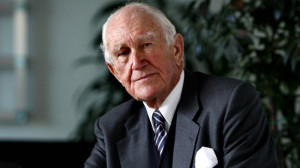Vale Malcolm Fraser

Malcolm Fraser
Photo: The Australian
Malcolm Fraser, who died this week, was perhaps Australia’s last truly liberal Liberal Leader.
And it could be argued his greatest contribution to the nation came after his seven-plus years as Prime Minister.
That he was able to reinvent himself after politics as an internationalist, wise elder statesman and the social conscience of conservatives is what will define his life for historians.
He took on a global role in the fight to end apartheid in South Africa and he advocated on behalf of millions of voiceless people in Africa helping them achieve improved health care and economic participation.
Notwithstanding all this, his premiership will be remembered for some significant achievements in humanitarianism and social justice including: the creation of SBS; the passing of the Human Rights Commission Act; and, his welcoming of Vietnamese refugees – dubbed “boat people” at the time.
Just five months after the former Labor Prime Minister Gough Whitlam died his chief enemy and successor as Prime Minister has also departed the national stage aged 84.
Perhaps fittingly, the two who became firm friends in later life have departed the stage together in a denouement to one of Australia’s most compelling political stories; once locked together in mortal political combat, then unified with mutual value of humanity post-politics, and now both gone.
Widely reviled for the controversial way he came to power; creating a constitutional crisis by using his numbers in the Senate to block supply bills in 1975, Fraser went on to serve three terms as Prime Minister in his own right.
But Fraser ended his years as a darling of the left for his outspoken criticisms of the contemporary Liberal Party – most passionately on asylum seeker policy.
A fearless political warrior in his day, Fraser was the kind of old-school political leader who remained accountable for his own words.
And while not guiltless or flawless, Fraser stood by his actions and accepted the consequences; he never accepted his actions in 1975 were wrong even as his friendship with Whitlam grew.
In the end, there is perhaps a lesson for contemporary politicians in an analysis of Fraser’s life.
He showed it was the principles to which he was committed that defined him, rather than his success as a political warrior.
Laurie Nowell
AMES Senior Journalist












